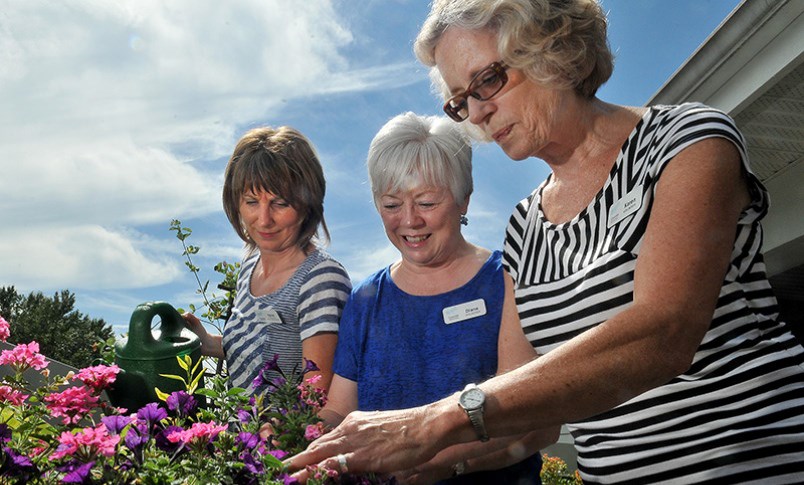After four-and-a-half years, Diane Richter has learned not to schedule anything after her volunteer shift ends at the Crossroads Hospice in Port Moody. The work can be so emotionally draining, she said, she just heads straight home to her “safe place.”
But she keeps coming back because she feels like she’s making a difference for people and their families facing the end of life.
That difference can be as small as folding laundry or brewing a pot of tea in the kitchen, said Karen Jamieson, a volunteer at the hospice for more than two years.
“Everybody makes a difference in some way,” Jamieson said. “But here it’s more meaningful.”
The hospice recently received a gift of $50,000 to create the Sylvia Ingalls education endowment fund to help train its 80 volunteers. The fund is named after a beloved palliative care volunteer there who died late last year.
Sylvie Jensen, Crossroads’ volunteer co-ordinator, said while every volunteer receives 30 hours of training before they begin working, the Ingalls' endowment will allow the hospice to bring in guest speakers and experts to help expand volunteers’ depth of knowledge about the grieving process and dealing with emotionally vulnerable families and patients.
“It’s always ongoing, learning to listen and deal with people who are grieving,” Jensen said. “We’re always challenged.”
Jamieson said she was familiar with hospice care after two friends and her brother died in hospice but she was still nervous when she started working one day a week at Crossroads.
“I was totally doubting myself,” she said. “I was afraid of saying the wrong thing or doing the wrong thing.”
Jensen said that’s a common reaction among new volunteers but, really, the role is more about listening and just being present.
“It’s not about doing,” Jensen said. “We’re not trying to fix it or give advice.”
Jamieson said even just having a normal conversation about daily events or the weather can go a long way.
“It gets their minds away,” she said. “Patients aren’t demanding. They’re happy to be in this environment.”



